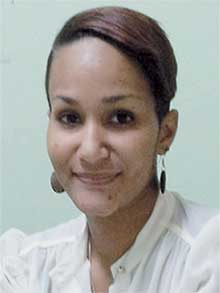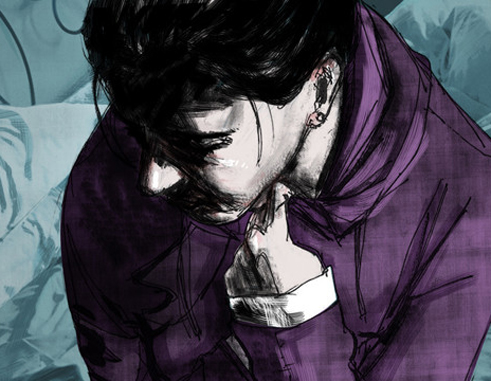
Many assume they know how it feels to be violated, or how one who has been abused should feel. They assume that there is a specific length of time in which one should be allowed to be angry, hurt, numb, to feel what they are feeling. But in reality, there can be no specific length of time placed on which someone should be expected to get over, move on, be better, etc. from what was done to them.
We have to look at sexual violence and really try to understand what that crime entails, what the person violated is going through, what they have been through and what they will continue to go through before we attempt to comment.
It is astounding how many are ignorant to what happens and how one is affected when they have been assaulted. Too often we force the individual who has already had so much taken from them, so much forced upon them, to take the path we seem best. That path is usually one that requires them to be silent, to ‘get over it’, to ‘move on’, to do what is best for the perpetrator, to do what society deems best. But how can society’s way be the best way forward when society can’t truly conceptualize what a survivor of sexual violence has gone through, when society deems the victim must prove that the crime committed against them wasn’t of their own doing?
What is expected from others with regards to crimes of this nature? How do we expect our friends, family and society to treat perpetrators of this crime?
They say that “no man is an island” and yet survivors of sexual violence are constantly left feeling alone. Who do they turn to? Where do they go for help?
Sexual violence can often leave victims feeling shameful, insecure, angry, alone, angry. We expect that members of society will be repulsed by individuals who commit these crimes and supportive of survivors. We expect an environment that encourages survivors to speak out about the abuse and their abuser. But instead, we live in an environment that shuns/ignores the issues surrounding Sexual Violence and makes survivors feel ashamed, scared and alone. We are part of a world where abusers are let off, where abusers have the public’s support, where abusers often get treated like the victims of the crimes they chose to perpetrate.
I don’t think it is asking too much, that society be more aware, less judgmental and more supportive of survivors. Blaming those who have been abused only serves to validate the actions of the abuser. It in many ways lets the perpetrators of this crimes know they have a free pass to continue committing their crimes because their victims aren’t believed, they are supported, they are not given the chance to share their story.
It is a fact that not many know what happens to an individual who has been violated and many know even less about how they are affected. We are not aware of the warning signs of predators, we are not aware of the symptoms of one who has been sexually violated. We are unaware of just how prevalent sexual violence is on our island.
We are allowing individuals committing these crimes to roam freely, allowing them to continue to violate. It may shock you to know that 1 in 3 women will be assaulted during their lifetime. Or that only 1 in 10 sexual assault victims, will ever report these crimes to anyone.
I am not excluding men as they too get sexually assaulted, but I have found that the data and studies conducted in this field appear largely to be done on females. I have within the last 10 years started speaking out about my abuse. I knew it would be difficult, but it never ceases to amaze me how difficult it can be at times.
What we as survivors/victims/thrivers/ have been through and are continuing to go through is not something that is understood by many, although there are many who share in our pain. All forms of abuse leave pain, suffering and wounds, both visible and invisible.
We look at women who are being abused by their spouses and ask why they don’t leave. I too have been guilty of asking why they stay. The answers they give all vary, but it is never one simple answer because the question in its self is not simple.
By asking you to begin your healing journey, I am asking you to face something you’ve never told anyone before or told very few I am asking you to open yourself up to being questioned on something you would rather not think about. But those of us who have been abused know all too well that those thoughts are never too far from our minds.
I know it’s difficult to address this aspect of our lives, as, for many of us, it has been easier to bury it and keep it to ourselves. I know that by speaking about it I’m asking you to place yourself in the line of fire, asking you to open yourself up to being blamed, being accused, being interrogated and maybe made to feel shameful, that you are a liar, that maybe you enjoyed it or (in some twisted way) wanted this, or that this is your fault. But by speaking out I am really asking you to take a stand and let your abuser know that you are no longer afraid of him, that you are moving forward with your life by dealing with what has happened to you.
What we have been through is scary and difficult to face. We’ve all dealt with it in various ways and maybe one of the ways to move forward is by speaking about it. You don’t have to make your story public, you don’t have to even tell an individual it can be written. I am asking you when I say ‘speak out’ to get it, to begin healing by saying ME TOO, but also knowing that ‘This is a step forward’, that you are not being silent. Being Loud doesn’t mean everyone hears — but maybe for now be Loud for you, let you hear yourself. Always remember, however, that you are not alone in this.
Survivors of sexual assault need a supportive environment to begin the healing process. They need to believe and feel that they are part of a culture that doesn’t support individuals who commit sexual crimes. We have to be the difference we want to see in our country. We have to be willing to start to make change.
We, at PROSAF, have acknowledged that violence against women is a problem in St. Lucia and the wider Caribbean. We are here to begin the metamorphosis that is desperately needed. We are always here to listen and if you are not ready to come forward but need a listening ear, feel free to contact us.
Remember that Sexual assault is something that happens to people, it does not define them; it is something that was done to them.
Survivors, Victims, Thrivers: Remember you are a strong, beautiful, intelligent woman/child/man who has suffered a trauma through no fault of yours. You are not guilty of any crime. Something was done to you against your will.
Sexual Assault is something that happened to you, it does not define you. You are worthy of love and happiness.
Always remember that you are not alone, that you have nothing to be ashamed of.
We are taking the baby steps necessary to make it better for all.
KNOW YOU HAVE A SAFE SPACE IN PROSAF.
If you are interested in finding out more information about sexual violence and what you can do as part of this community, please feel free to contact us at:
Yours Sincerely,
Souyenne Dathorne, Velika Lawrence
Email: ssaitco@hotmail.com – thepowerofone_v@hotmail.com
Facebook: SURVIVING SEXUAL ABUSE IN THE CARIBBEAN: https://www.facebook.com/pages/PROSAF-Surviving-Sexual-Abuse-in-the-Caribbean/165341356853908
Webpage: http://www.prosaf.org (under construction)
Telephone: 1-758-724-9991(sue) 1-758-723-6466(vel)





![Simón Bolívar - Liberator of the Americas [Photo credit: Venezuelan Embassy]](https://thevoiceslu.com/wp-content/uploads/2025/12/Simon-Bolivar-feat-2-380x250.jpg)



